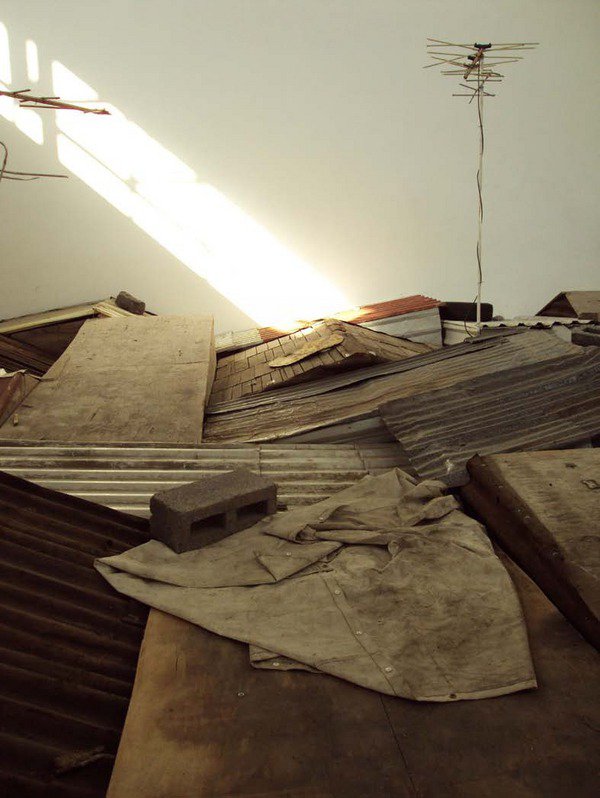Kader Attia
dal 21/5/2014 al 21/8/2014
Segnalato da
21/5/2014
Kader Attia
Beirut Art Center, Beirut
Contre Nature is the result of a research around the notion of repair. Through unexpected modes of re-appropriation, the artworks, produced in several forms and media, raise fundamental questions on what binds and separates nature and culture in different spaces and at different times.

Beirut Art Center is pleased to present Contre Nature, a solo exhibition by the Berlin-based, Algerian artist Kader
Attia.
This exhibition is the result of an ongoing, extensive, interdisciplinary research around the polysemous notion of
‘repair.’ Through unexpected modes of re-appropriation and repair, Attia’s works raise fundamental questions on
what binds and separates nature and culture in different spaces and at different times. Contre Nature consists of
works produced in several forms and media, including installations, sculptures, collages, videos, slides projection,
photographs, newspaper clippings, and objects.
The exhibition opens with Mimesis as Resistance (2013), a video installation that introduces the practice of
‘mimicry as camouflage,’ one of the many forms of repair. Attia showcases the lyrebird’s unique ability to mimic
any sound that exists in nature or culture. Imitating the noise of chainsaws emanating from deforestation activities
and the cracking sound of falling trees, this bird embodies nature’s agency for survival, a process that Darwin and
Wallace called “natural selection.”
The notion of repair is equally pertinent to monumental, “cultural” projects. The artist is reproducing Kasbah
(2009), a large-scale, site-specific installation that unfolds in the central hall of the center. In a process that is
similar to the reconstitution of a «kasbah» almost 60 years ago by Algerian labourers for their home in colonial
construction sites, Kader Attia has built his installation with material ‘left-overs’ from Beirut and its surrounds.
They are collected, assembled, and laid on the floor in reference to ephemeral, social architecture such as a
shantytown. This re-appropriation of urban waste is another form of repair that allowed for the construction
of free, minimalist, and highly functional residential units, the measurements of which inspired a generation of
architects like Le Corbusier and Roland Simounet.
At the last Congrès international d’architecture moderne (1959), a group of architects, inspired by Simounet’s
ideas, challenged the dogma of architectural modernism—embodied by Le Corbusier, Mies van der Rohe, and
Walter Gropius—which aimed to export Western building methods to the rest of the world. A year later, some
of these architects formed Team X, and started a movement that adapted architecture to the environmental and
social specificities of its context, thus re-instating the practice of building culture from nature.
Attia also draws attention to the divergent approaches to reparation in modern, Western civilization and
traditional, non-Western communities. In modern societies, repairing an object consists of bringing it back to
its original state, or to make it look new. However, a series of found objects from different locations attests to
a desire to make the act of repair as visible as possible. The repair of the bodywork of a scooter using fiberglass
and pieces of cardboard packages, or of an ‘oud using the helmet of a French soldier from the colonial army
becomes an “artistic” signature of the repairer, as well as a political gesture of re-appropriation. Even though they
are dissimilar, these practices must be understood as manifestations of man’s trans-historical desire to dominate
nature.
A part of the show will also be dedicated to the body, a site of repair where political stakes are very high. Attia’s
works engage with plastic surgery and prosthetics, African masks, the injured faces of soldiers who fought in the
Great War, and transgender liminality. The visitor’s itinerary of Contre Nature ends with a repair intervention on
the walls of Beirut Art Center.
Image Kader Attia, Kasbah
Opening May 22 from 6pm to 9pm
Beirut Art Center
Jisr El Wati - Off Corniche an Nahr. Building 13, Street 97, Zone 66 Adlieh. Beirut, Lebanon.
Mon-Satur 12 to 8 pm
Free entrance



